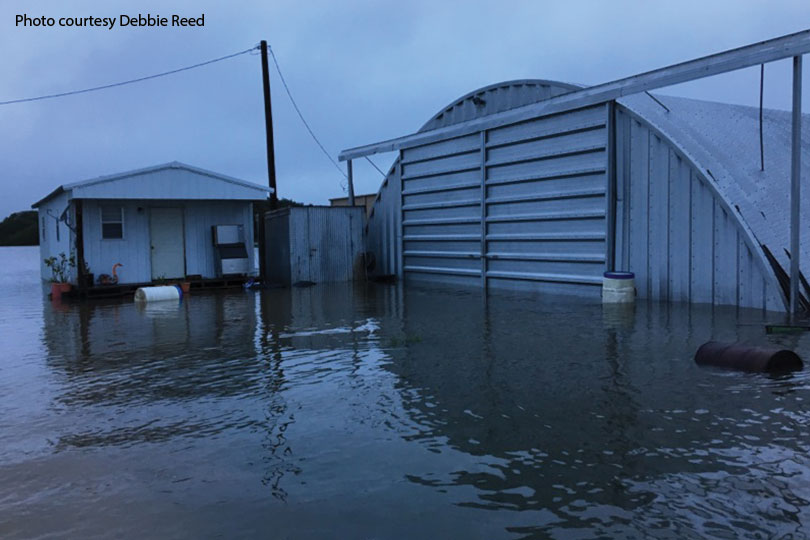By Paul Schattenberg
AgriLife Today
Texans affected by Hurricane Harvey should be aware of unscrupulous people who may try to take advantage of them through fraud, scams and identity theft and other criminal activity, said a Texas A&M AgriLife Extension Service specialist.
“Texans need to be aware of the potential for things like fraud, ID theft and price gouging in the aftermath of Hurricane Harvey,” Nancy Granovsky, AgriLife Extension family economics specialist in College Station, said. “Unfortunately, some people look at disasters as an opportunity to take advantage of the desperation and vulnerability of those affected. While recovering from a disaster, people may not want to think about this, but it could happen so they need to be vigilant.”
According to the Texas Attorney General’s office, a natural disaster “pulls in an army of price gougers, fly-by-night, door-to-door contractors and bogus charities.” Both state and federal recovery officials are encouraging those affected by Hurricane Harvey to take steps to avoid common post-disaster fraud.
Granovsky said price gouging is illegal under the Texas Deceptive Trade Practices Act, and the state’s attorney general has already warned against profiteering during a disaster.
“Charging excessively for necessities like groceries, drinking water, ice, gasoline and such in a designated disaster area can constitute price gouging,” she said. “If you feel you’ve been the victim of price gouging, you can file a complaint with the Texas Attorney General’s office.”
For additional information, visit https://texasattorneygeneral.gov/.
Granovsky also said those affected should be wary of false offers of state or federal aid and of suspicious contact by individuals claiming to be from the Federal Emergency Management Administration (FEMA) or other emergency response agencies.
“Be especially wary if they ask for personal information, such as your Social Security number or bank account number,” she said “Ask to see an ID badge or other identification. Remember, FEMA inspectors are there to verify damage and don’t endorse specific contractors, recommend repairs or determine your eligibility for assistance. It’s okay to confirm your FEMA registration number, but don’t provide your Social Security number or any other personal information.”
She also said beware of people going door to door offering services.
“If you have insurance, call your adjuster and get an estimate of what it would cost to clean up or repair the damage so you have a good idea of what it should reasonably cost. Then you can use that amount as a baseline for what you should pay. Of course, it’s always best to work with service providers you know and trust,” she said.
Granovsky, FEMA and the Texas Attorney General’s office also provided the following tips on how to avoid fraudulent contractors:
1. Use only state-licensed local contractors backed by reliable references.
2. Make sure the contractor has general liability insurance and workers’ compensation.
3. Get a minimum of three estimates in writing and insist on a clear, written contract.
4. Call the Better Business Bureau to see if there are any complaints against the contractor.
5. Write down the salesperson’s license plate number.
6. Avoid out-of-town businesses as it may be more difficult to correct a problem or get your money back.
7. Get everything in writing and keep a copy of all documents.
8. Do not sign a contract with blanks.
9. Make sure guarantees are in writing and are reflected in the contract.
10. Have an independent agent such as an insurance adjuster or real estate inspector inspect the completed work before you make full payment.
11. Don’t sign completion papers or make final payment until the work is completed to your satisfaction.
“It’s also a bad idea to pay cash to a contractor, and legitimate contractors won’t ask for cash up front, “Granovsky said. “Use a credit card or pay by check so you have the option of stopping payment or challenging the charges if things go sideways.”
She also suggested never paying more than half the costs of repairs up front and said 30 percent of the total cost of the project is reasonable for a down pay

